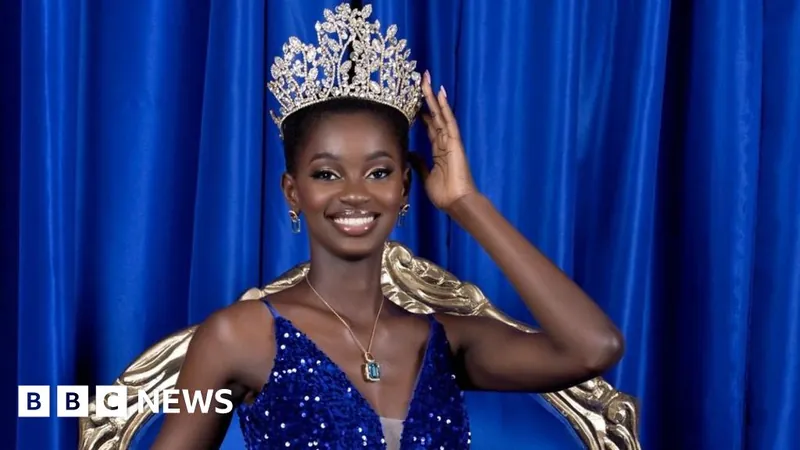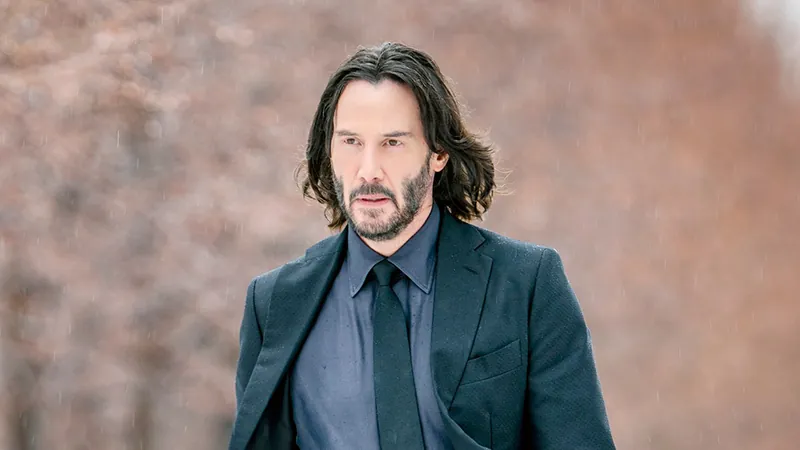
Miss Ivory Coast Pageant Breaks Tradition by Banning Wigs and Weaves to Celebrate Natural Beauty
2025-04-06
Author: Ling
In a groundbreaking move, the Miss Ivory Coast beauty pageant has officially banned wigs and weaves from its preliminary rounds in an effort to promote natural hair and beauty. For years, contestants in this West African nation have often conformed to beauty standards that favor long, flowing wigs and hair extensions. The new policy signifies a notable shift in values within the beauty competition landscape.
Historically, contestants have spent excessive amounts of money on their appearance, often opting for artificial hair to meet the demands of the pageant scene. However, the recent victory of Marlène-Kany Kouassi in 2022, who proudly wore her natural, short hair, made waves not only locally but also globally. This win challenged the pervasive Western beauty ideals typically favored in such competitions.
Victor Yapobi, president of the Miss Ivory Coast organizing committee, articulated the philosophy behind the ban. "We want the candidates to be natural - whether with braids or straightened hair, it should be their own. Beauty must be raw," he stated emphatically. This initiative positions Ivory Coast as the only African nation enforcing such rules for a national beauty pageant, illustrating a strong intent to showcase the authentic beauty of Ivorian women.
In addition to the wig ban, other significant changes have been introduced. The minimum height requirement for contestants has been lowered to 1.67 meters (5.4 feet), the age limit has been raised to 28, and the entrance fee has been reduced significantly, making participation more accessible. Yapobi explained that these adjustments aim to alleviate the financial burden many hopeful contestants face.
The reaction to the wig ban has been mixed among contestants. While some, like 21-year-old real estate agent Emmanuella Dali, feel empowered, stating, "This rule gives me more pride as a woman - as an African woman," others view it as limiting personal expression. “I love wigs,” remarked makeup artist Astrid Menekou, showcasing the tension between tradition and modernity in the beauty industry.
The debate surrounding the ban highlights deeper cultural attitudes towards beauty in Ivory Coast, where wigs and weaves remain popular. These styles are not only fashion statements but also serve practical purposes, such as protecting natural hair from daily wear and tear. As such, many hairdressers are concerned about the ban's economic ramifications, as the lucrative hair industry, valued at over $300 million, includes significant business generated from wigs and weaves.
With the Miss Ivory Coast competition set to culminate at the end of June 2025 in Abidjan, organizers remain cautiously optimistic about the public's reception. If successful, this change could pave the way for a greater acceptance of natural beauty both within and outside the pageant realm, influencing societal perceptions far beyond the runway.
As the preliminary rounds progress, the challenge now lies in whether this newfound embrace of natural beauty will persist and inspire broader societal acceptance across Ivory Coast and beyond. Doria Koré, crowned Miss Haut-Sassandra, reflected the sentiment of the moment, stating, "Winning with natural hair shows the true beauty of African women."
As the world watches, this pivotal moment could herald a new era for beauty standards in West Africa and beyond, igniting an exciting conversation about identity, self-worth, and the evolution of beauty itself.



 Brasil (PT)
Brasil (PT)
 Canada (EN)
Canada (EN)
 Chile (ES)
Chile (ES)
 Česko (CS)
Česko (CS)
 대한민국 (KO)
대한민국 (KO)
 España (ES)
España (ES)
 France (FR)
France (FR)
 Hong Kong (EN)
Hong Kong (EN)
 Italia (IT)
Italia (IT)
 日本 (JA)
日本 (JA)
 Magyarország (HU)
Magyarország (HU)
 Norge (NO)
Norge (NO)
 Polska (PL)
Polska (PL)
 Schweiz (DE)
Schweiz (DE)
 Singapore (EN)
Singapore (EN)
 Sverige (SV)
Sverige (SV)
 Suomi (FI)
Suomi (FI)
 Türkiye (TR)
Türkiye (TR)
 الإمارات العربية المتحدة (AR)
الإمارات العربية المتحدة (AR)